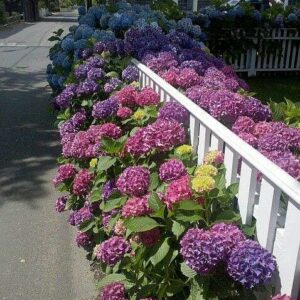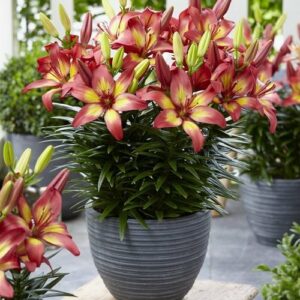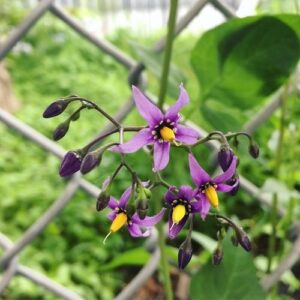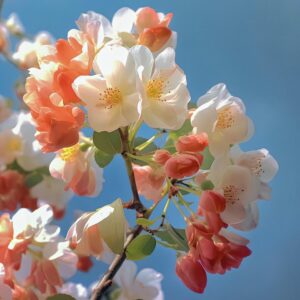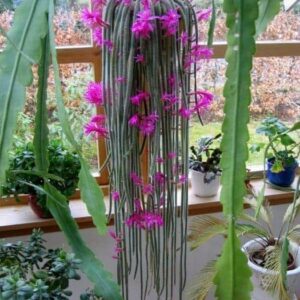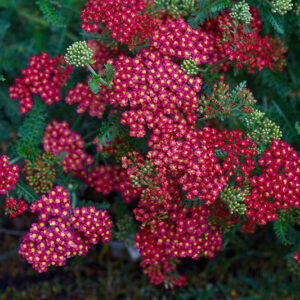Pink, a color that exudes grace, sweetness, and joy, never fails to leave us in awe when it comes to flower gardening. Perennial flowers in shades of pink add a delightful and gentle touch, creating an enchanting atmosphere that no other color can match. The variety of pinks available is simply captivating, from bold and vibrant hot pink blooms to soft and charming pastel pink flowers. Adding pink flowers to your garden is a breeze since the options are endless.
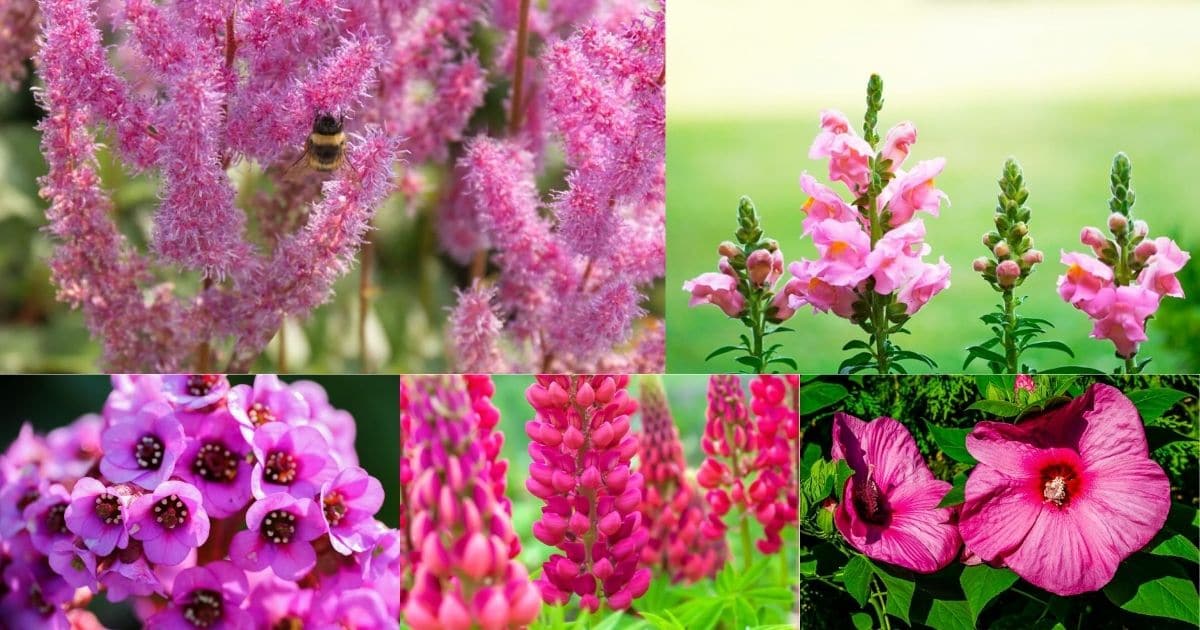
There are numerous choices when it comes to pink flowers, making it a highly sought after color for gardens. However, the classic pink flowers like mums, carnations, dahlias, and roses are too common. It’s time to add diversity to our garden designs by incorporating different pink perennials. Pink is a subtle color that complements the surroundings without overpowering them, even the brightest pinks don’t demand attention like red or orange flowers. This is what makes pink perfect for creating an emotional ambiance, evoking feelings of youth, innocence, and sweet romance. Pink perennials can add elegance and charm to gardens while also maintaining a playful demeanor. One such option is the Rose Campion (Lychnis coronaria).
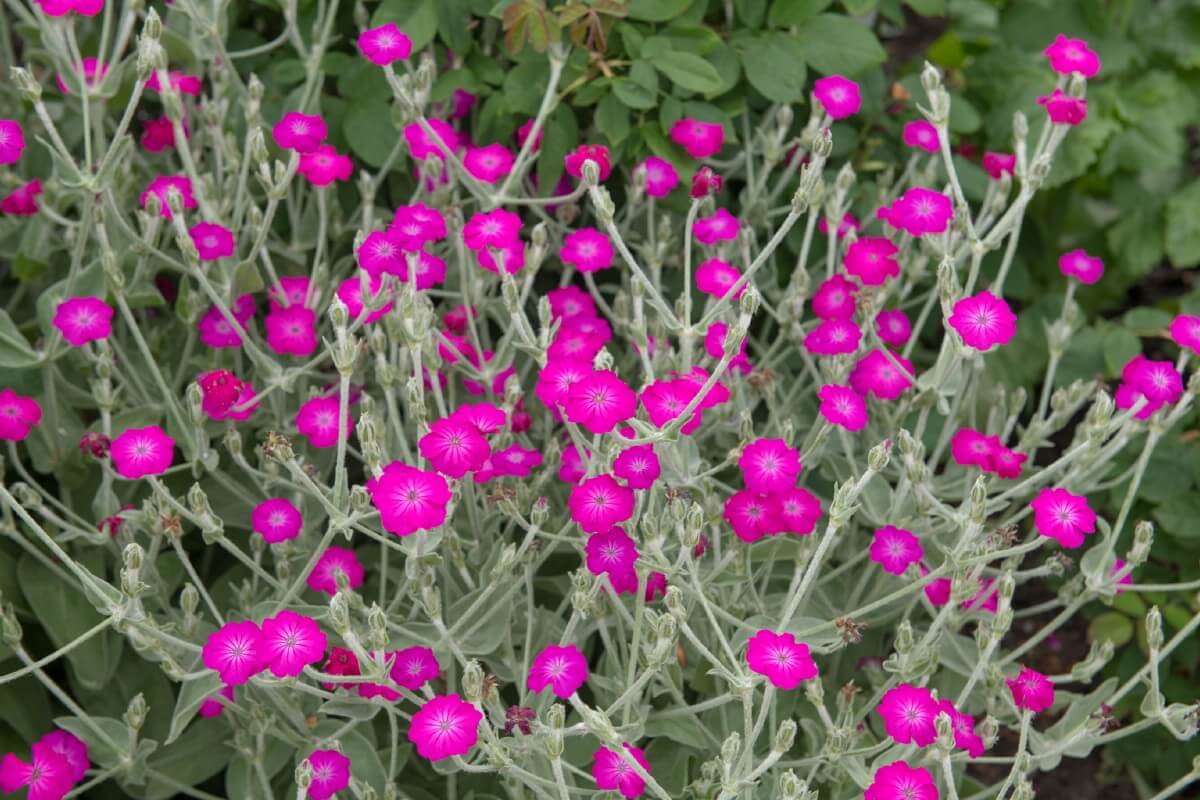
The Rose Campion is a stunning perennial that boasts charming magenta-pink blossoms which are complemented by its silver stalks and foliage. Apart from its visual appeal, this plant is also fuss-free and attractive throughout the seasons, producing numerous little hot pink flowers that add to the beauty of your garden. The foliage of the Rose Campion is equally captivating, with erect, thin, and silvery green stalks that have very few leaves. Blooming from late spring through summer, the Rose Campion flowers grow at the top of the stems, creating a sea of brilliant color that will impress any gardener. With its hardiness to zones 3-8, full sun or partial shade requirements, deer-resistant properties, and drought tolerance, the Rose Campion is a must-have for any garden. Another plant that shares similar qualities is Bergenia (Bergenia sp.).
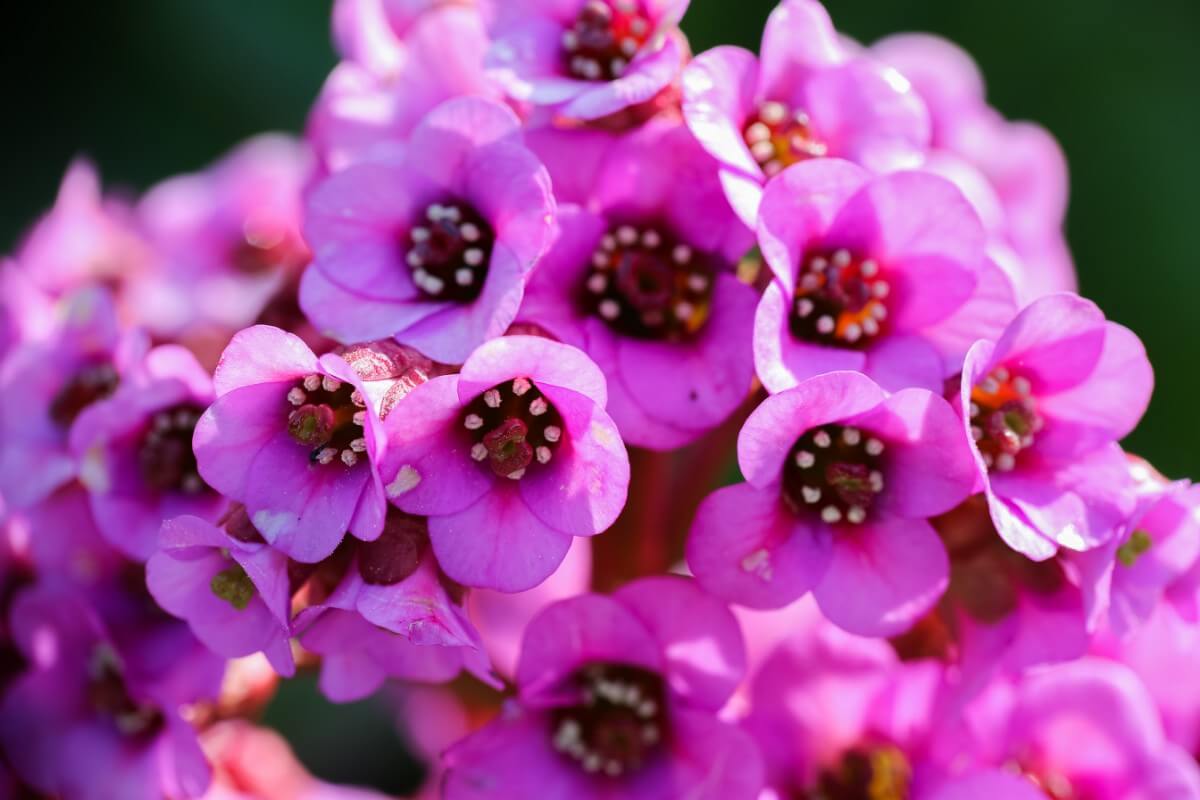
Bergenia is a versatile plant that is grown for both its attractive foliage and unique, pretty pink blooms. The flowers grow on tall stems above the large leaves, creating an elegant look in the early spring. This perennial plant provides year-round interest with its leathery-looking foliage and ample range of bloom colors from soft pink to deep almost-purple pink. Bergenia requires minimal maintenance and is an ideal choice for borders, flower beds, rock gardens, and walkways. There are different varieties of Bergenia to choose from, including Fringed Bergenia, Heartleaf Bergenia, Winter-Blooming Bergenia, and Elephant Ears Bergenia. These plants can thrive in full sun, partial shade, or full shade, and are hardy to zones 3-8, depending on the species. They are also deer and rabbit resistant. Another popular plant to consider is the Lupine (Lupinus sp.).
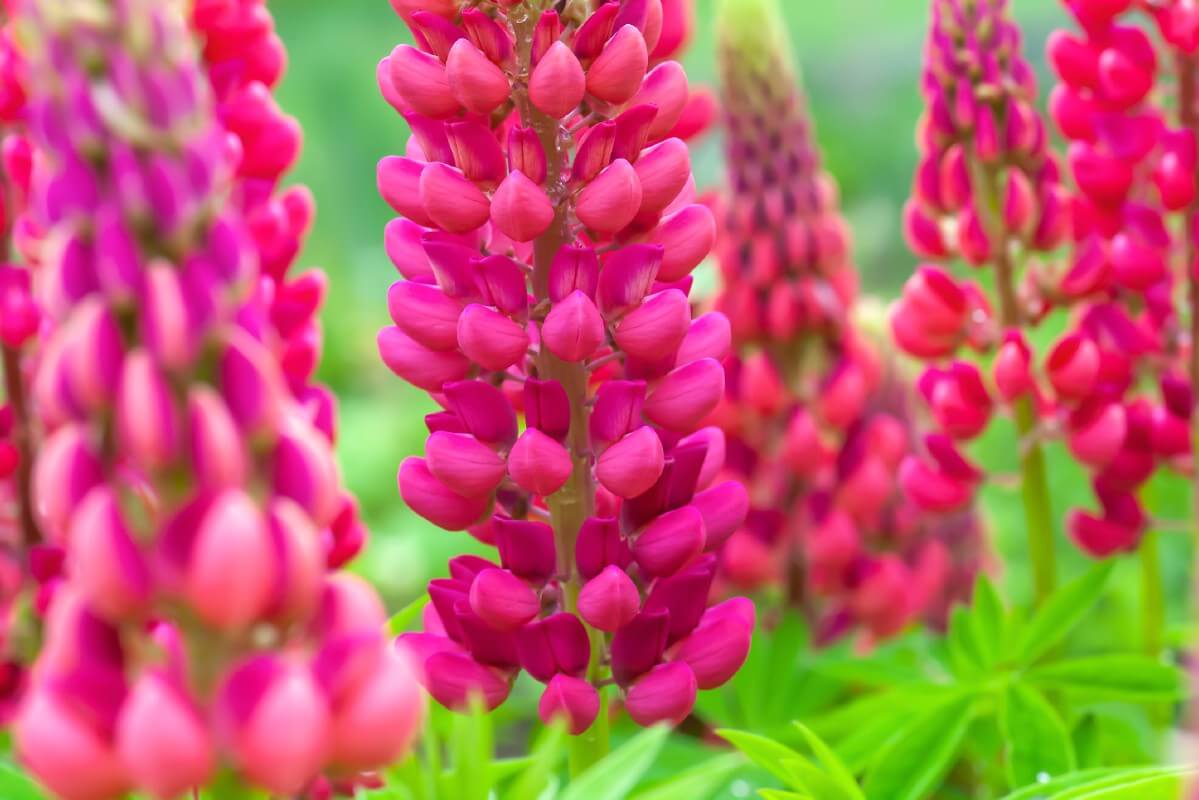
Pollinators absolutely adore Lupines, and the many varieties of pink make them a top pick for landscaping. With their tall stems covered in pea-shaped flowers and beautiful palmate foliage, Lupines offer an attractive addition to any garden. These perennials come in various colors and sizes, including some excellent pink options and dwarf varieties. They bloom in the spring, making them a striking sight in the garden, especially when planted in groups. Lupines attract a wide range of pollinators, including hummingbirds and butterflies, thanks to their long blooming season. Some of the pink-blooming Lupine options include Chatelaine (baby pink), Gallery Pink (deep pink), Mini Gallery Pink Bicolor (pink/white), Pink Fairy (soft pink/white), Popsicle Pink (lipstick pink), and Pink Flamingo (dark pink). Lupines are hardy in zones 4-7, love full sun, and are resistant to deer and rabbits. Another great option for attracting pollinators is Hummingbird Mint (Agastache sp.).
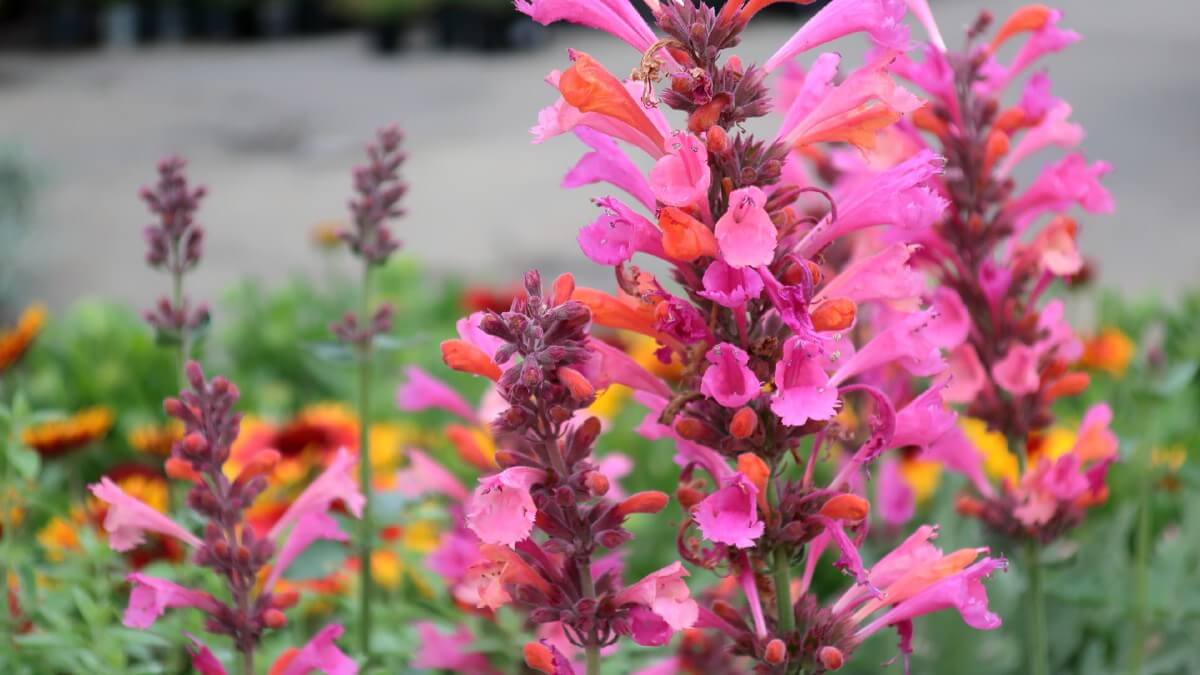
The pink Hummingbird Mint is not only visually stunning but also emits a sweet minty scent. With its lovely pink flowers and aromatic leaves, this perennial is a must-have for any garden. True to its name, hummingbirds are attracted to this plant just as much as we are. While there are various colors available, the pink shades are some of the best, producing tall spikes of tubular flowers that bloom abundantly for weeks during summer through fall. The delicate-looking blooms add a touch of gentleness to any landscape, and they require low-maintenance while being tough and sturdy. Examples of pink blooming Hummingbird Mint include Kudos Coral, Kudos Ambrosia, Tutti Frutti, Rosie Posie, Raspberry Nectar, and Morello. It is hardy in zones 5-10, prefers full sun, and is resistant to drought, deer, and rabbits. Another great option to consider is the Astilbe, which is also hardy and adds a unique texture to gardens with its feathery plumes of flowers.
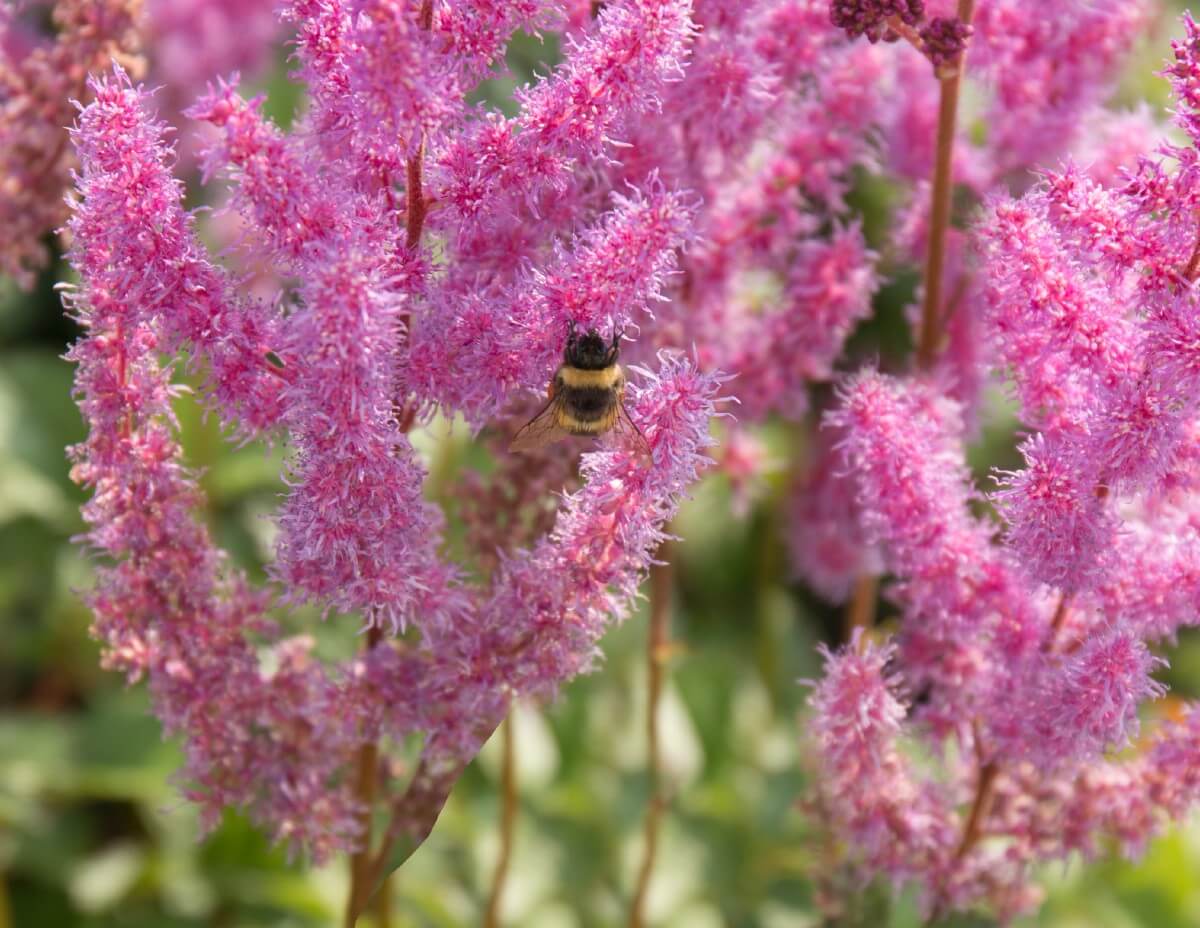
For those seeking a stunning pink plant that thrives in shade, the classic Astilbe should be at the top of your list. The tall and feathery pink flower plumes of this perennial add a romantic touch to any landscape, with their giant puffs of color standing out against the dark green foliage. Butterflies are also drawn to the hundreds of densely packed flowers that bloom all summer long. Astilbe is perfect for shade gardens, borders, and edges, and comes in a variety of pink shades including Drum and Bass (dark pink), Country and Western (rose pink), Hyacinth (lavender-pink), Little Vision in Pink (rich pink), Alive and Kicking (dark rose pink), Rhythm Blues (raspberry pink), and Wonderful Day (baby pink). Astilbe is also deer and rabbit resistant, and can thrive in partial or full shade in zones 4-9. Another option for a pink plant is Hardy Hibiscus (Hibiscus moscheutos).
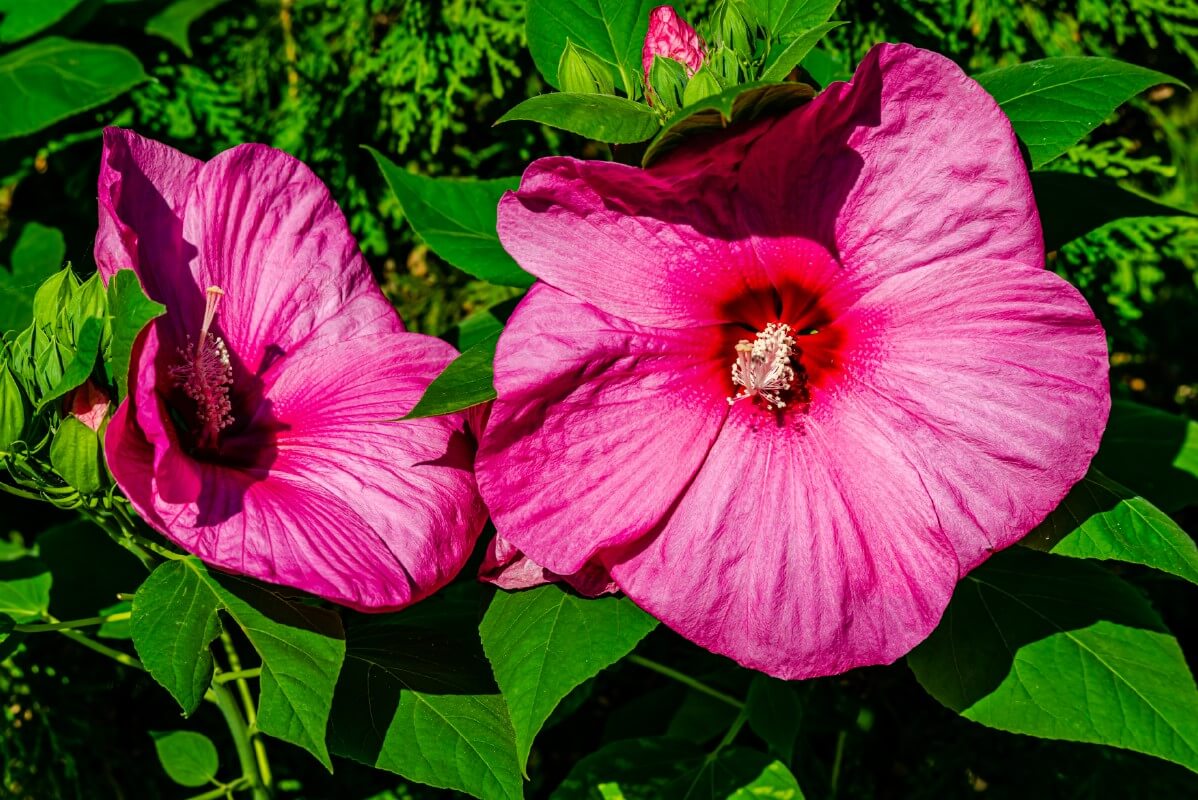
If you’re yearning for a tropical feel but don’t live in an exotic location, the Hardy Hibiscus is the perfect solution. Its vibrant and large open blooms are sure to impress with their stunning array of colors. This native perennial shrub can grow up to 5 feet tall and is available in various color combinations, including a gorgeous pink hue. The Hardy Hibiscus attracts a range of wildlife, such as butterflies, bees, and hummingbirds, making it a great addition to any landscape. When in bloom, the shrub is covered with massive flowers that add a touch of drama and flair. Some of the pink blooming Hardy Hibiscus varieties include Luna Pink Swirl, Brandy Punch, Disco Belle Pink, Peppermint Schnapps, Mocha Moon, and Southern Belle. The plant is hardy to zones 4-9, requires full sun, and is drought, heat, and humidity tolerant. It’s a Midwest, Northeast, Southeast, and Southwest native perennial shrub that is sure to captivate any gardener’s heart. Additionally, Rose of Sharon (Hibiscus syriacus) is another excellent option.
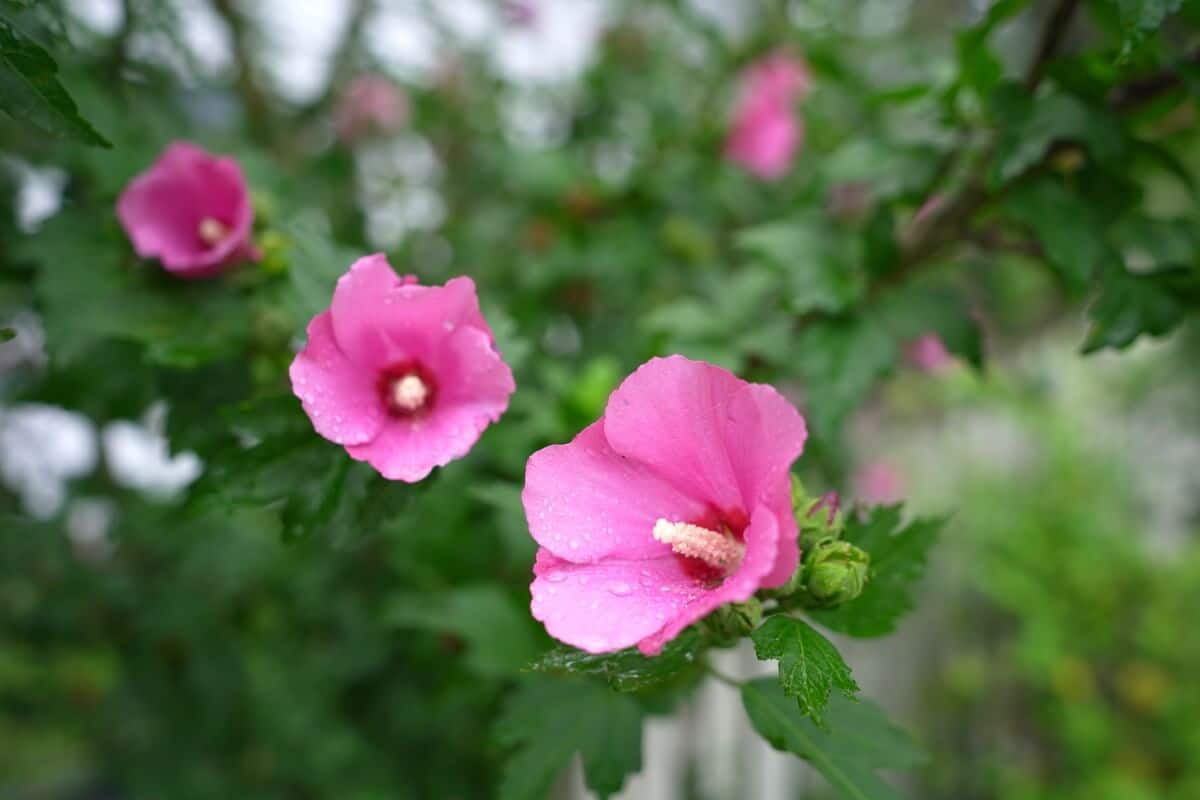
The Rose of Sharon is a tree-like version of the hardy hibiscus that is a must-have in any landscape. Despite their similarities, the Rose of Sharon and Hardy Hibiscus differ in growth form and flower size. While the Rose of Sharon grows tall, up to 10-12 feet, the Hardy Hibiscus is shrub-like and dies back each year, reaching only 6 feet tall. Additionally, the Rose of Sharon produces smaller flowers, averaging 3-6″ wide, while the Hardy Hibiscus boasts dinner-plate-sized blooms. It is worth noting that while the Hardy Hibiscus is native to North America, the Rose of Sharon is not. Both plants are showstoppers in any garden, with bright and bold colors that steal the show. Pink Chiffon, Blush Satin, Blushing Bride, Collie Mullens, and Lil’ Kim are some popular varieties of the pink blooming Rose of Sharon. These plants are hardy to zones 5-8, thrive in full sun, and are drought, heat, and humidity tolerant. Additionally, they are deer resistant. If you want to add some color and life to your landscape, consider adding some Snapdragons (Antirrhinum majus) to your garden as well.
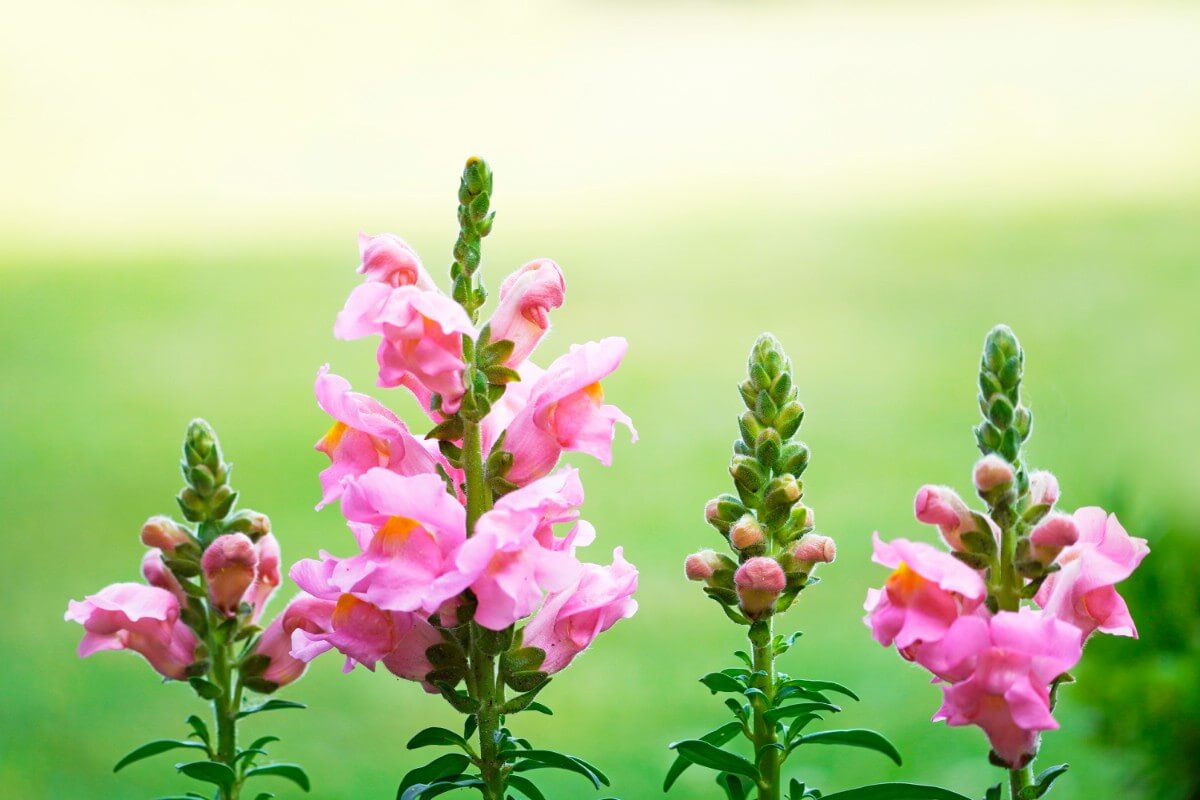
Snapdaons are a captivating type of flower that can bloom for months, adding a touch of grace and mystery to any garden. These cultivated flowers come in a range of colors, including stunning shades of pink. The name “Snapdaon” originates from the fact that their blooms open up like the mouth of a dragon when gently squeezed. These charming perennials thrive in cool weather and may temporarily stop blooming during summer’s heat, only to resume again in the fall. Snapdaons attract an array of pollinators, such as hummingbirds, butterflies, bees, and others. Some of the popular pink Snapdaon varieties include Calima Pink, Sonnet Rose, and Arrow Pink. These flowers are deer-resistant and can grow in full sun, making them a great addition to gardens in hardiness zones 5-10. Another beautiful option for a garden is the Speedwell (Veronica sp.).
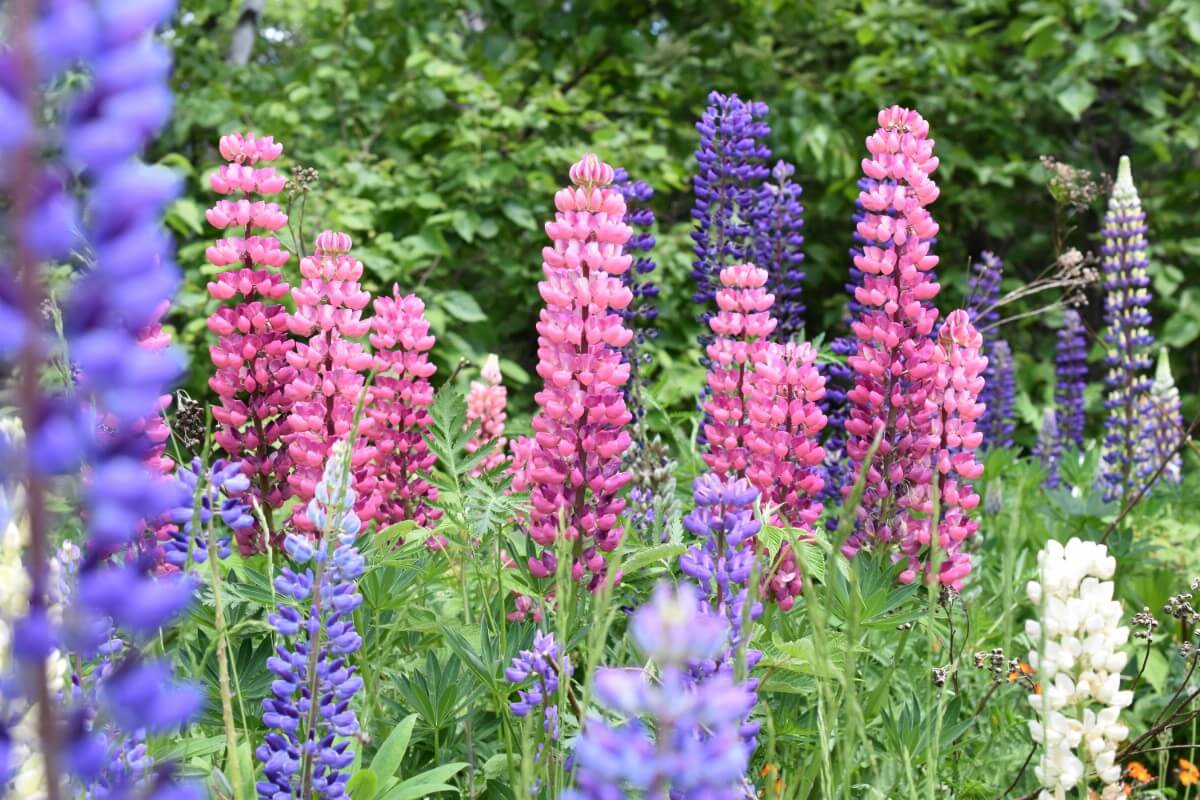
For those seeking an eye-catching, low-maintenance plant with long-lasting blooms in a shade of pink, consider Speedwell. Its tall spikes of star-shaped pink flowers towering over lush green foliage are reminiscent of giant paintbrushes. A popular choice among gardeners due to its showy display, fuss-free upkeep, and blooming period of 6-8 weeks or more, the pink Speedwells are particularly alluring when lining walkways or borders, or used as cut flowers. When planted in large groupings, they make a bold statement that butterflies cannot resist. On breezy days, the flowers sway gently in the wind, creating a dreamy, enchanting atmosphere.
There are different types of Speedwell, including the hardy Spiked Speedwell (V. spicata), which blooms in mid-summer and grows to a height of 11-30 inches, making it suitable for zone 3 and above. Some pink options include “Giles van Hees” (bright pink) and “Erika” (pink/lavender). Garden Speedwell (V. longifolia), the tallest of the Speedwells, naturalizes in many parts of North America, has pink varieties such as “Fairy Tale” (pink), “Sonja” (bright pink), “Lila Karina” (dusky pink), “Perfectly Picasso” (hot pink), and “First Love” (vibrant pink), and blooms in mid-summer, with a height range of 2-3 feet, hardy to zone 4 and above. Hybrids, usually a cross between spicata and longifolia, include “Pink Damask” (pastel pink), “Eveline” (magenta pink), “Aspire” (rose pink), “Pink Potion” (light pink), and “Sweet Lullaby” (baby pink).
Another option for pink plants is Dianthus, which also has a wide variety of colors and forms.
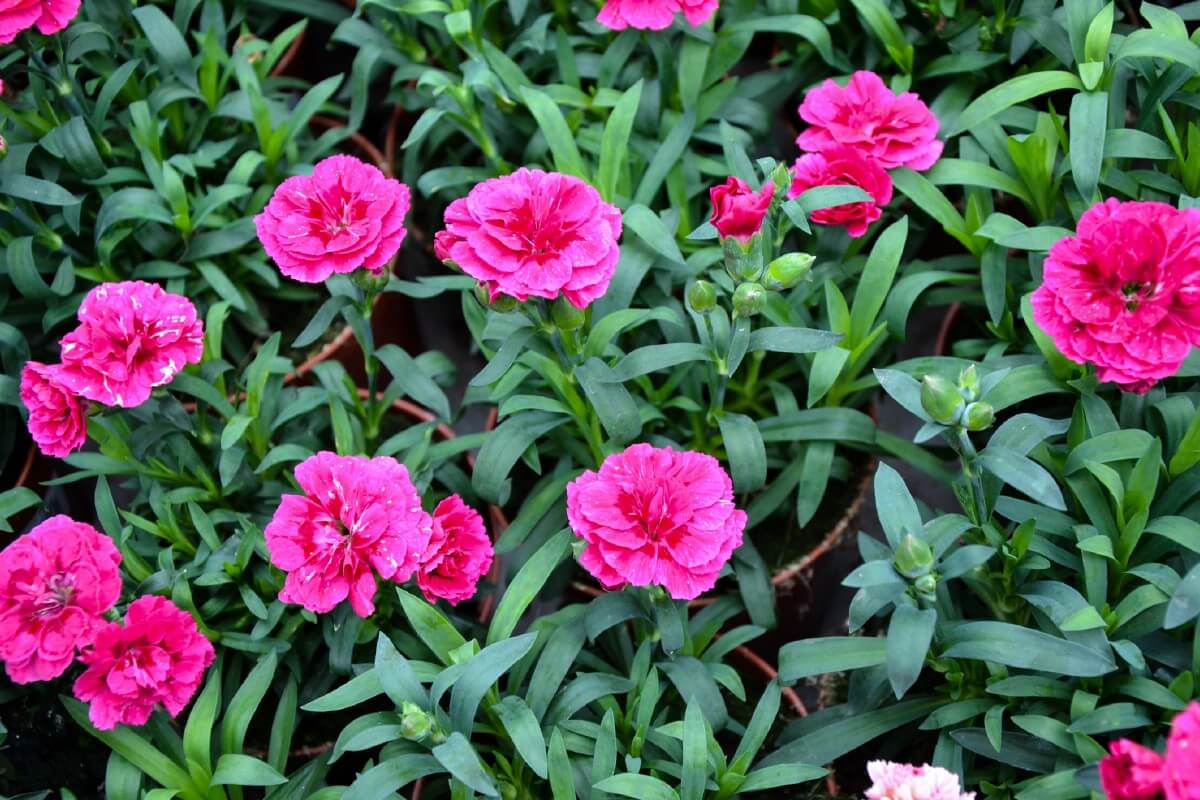
Dianthus, also known as Pinks, is a stunning pink perennial that is a must-have for any lover of the color pink. These low-growing, mat-forming plants are perfect for ground cover or filler plants and will turn your yard into a beautiful carpet of pink. With over 300 species and countless cultivars and hybrids, it can be difficult to choose just a few Dianthus, but some of our favorites include Coral Reef, Pinball Wizard, Raspberry Surprise, Candy Floss, and Superstar. These bicolor flowers with pink and white or red swirls and markings are incredibly detailed and have a sweet clove-like fragrance that will make your garden smell amazing. Dianthus is hardy to zones 3-9, depending on the species, and is deer and rabbit resistant. In addition to Dianthus, Lungwort (Pulmonaria) is another beautiful pink perennial to consider.
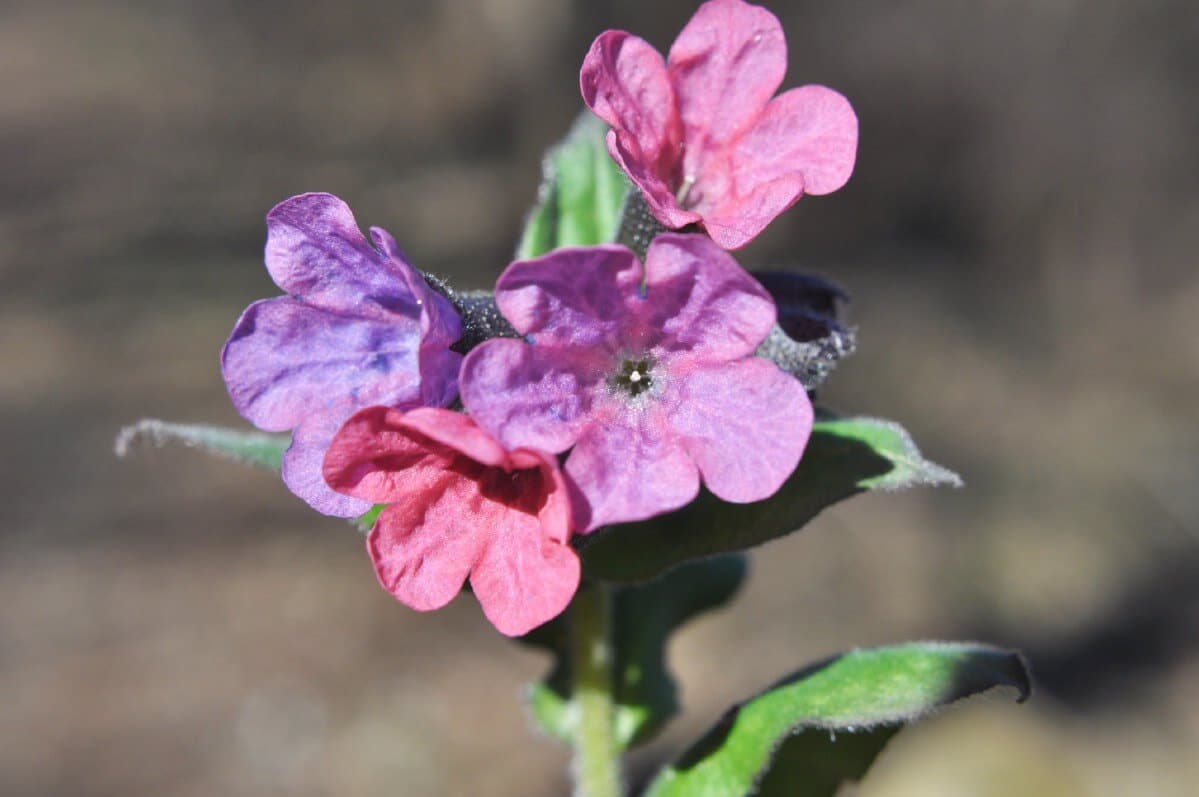
Lungwort is a versatile plant that offers both attractive foliage and striking pink flowers. Its evergreen leaves make it a valuable addition to any landscape, providing speckled greenery year-round. The vibrant pink flowers grow in clusters above the foliage, creating a striking contrast that catches the eye. While not all Lungworts have pink flowers, the ones that do are particularly stunning. Some of the varieties with pink blooms include Shrimps on the Barbie (bright pink), Pretty in Pink (rose pink), Raspberry Splash (pink/purple), and Barfield Pink (pink/white). Lungwort is hardy in zones 4-9 and can thrive in partial or full shade. Additionally, it is resistant to deer and rabbits.
